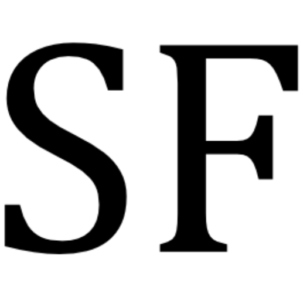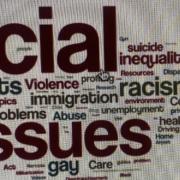Taking a Complexity Perspective on Canada’s Challenges, Part III: Why Complexity Means Our Actions Are Not Reversible
In Part I of this series, we looked at research from the Complexity and Management Centre at the University of Hertfordshire, which shows that what happens in society emerges from the web of our collective actions, inactions, and intentions. From these interactions, patterns form that shape both our individual and shared existence. These patterns cannot be controlled or predicted with certainty.
In Part II, we explored one of today’s most dominant—and damaging—patterns: neoliberalism. This ideology has weakened Canada’s social and economic fabric and driven the dangerous trajectory we see south of the border.
Now, in Part III, we turn to an important concept from complexity science: path dependence.
Path Dependence: The ‘What’ and the ‘How’ Both Matter
Path dependence is the idea that what we face now—and what we will face in the future—is profoundly shaped by our past actions. Every choice we make changes the world and alters the patterns of how we relate to each other. Once we take a step—whether action or inaction—the future we could have had is no longer possible.
As complexity theorist Jean Boulton writes in The Dao of Complexity: “The future path is created one step at a time and builds on the steps already taken.”
This means that what we do today in response to our current polycrisis will close some doors and open others. And it’s not only what we do that matters—it’s how we do it. The way changes are implemented shapes our patterns of interaction and can determine whether they reinforce or undermine our shared future.
Paraphrasing Aldous Huxley: the ends cannot justify the means—because the means shape the ends.
So as we address Canada’s challenges, we must ask: Whose actions are we rewarding and reinforcing? Are we doubling down on neoliberalism? Or are we building toward a more sustainable and shared prosperity? We should treat the warnings of neoliberalism’s champions with deep skepticism. Their ideology was never grounded in credible evidence, and it isn’t now.
Bills C-2 and C-5: Why the ‘How’ Matters
Two early, high-profile actions by the Carney government—Bills C-2 (border regulation) and C-5 (major resource projects)—have sparked debate. Critics warn of potential authoritarian overreach, or at least a reaffirmation of neoliberal governance.
Laws outlast governments. Once passed, these bills become tools available to future leaders—who may not share today’s commitments to reconciliation, social justice, or the environment. If these bills normalize authoritarian methods “for a good cause,” we open the door for others to define what is “good” in far less benevolent ways.
Border Regulation
We can agree on the need for accountable border oversight. But let’s be clear: the narrative that our border is “out of control” is a political fiction—popularized by Donald Trump, not grounded in fact. We must avoid overreacting to manufactured problems, especially in ways that could harm refugees and, ultimately, Canadians.
Resource Project Approvals
Canada needs effective, streamlined approvals for projects—especially those tied to clean energy—but this must be done with care. The push for speed must not turn into deregulation wrapped in a flag. Large corporations will eagerly exploit this moment to advance projects that serve shareholders, not the public interest. Many could be Faustian bargains—profitable for a few, but socially and environmentally costly for the country.
And here’s where “how” matters most: our new Prime Minister has spoken eloquently about the climate emergency and our obligations to Indigenous peoples. If major projects are rushed forward without genuine consultation, respect for rights, and environmental safeguards, the consequences will be predictable: further polarization, legal challenges, project delays, and the erosion of public trust. Social licence is not a bureaucratic hurdle—it’s the foundation for durable progress. Ignoring it will not only contradict our commitments to reconciliation, it will likely make these projects harder, slower, and more expensive in the long run.
Carbon Capture and Sequestration (CCS) is a prime example: expensive, geographically limited, and minimally effective, yet promoted by the oil and gas sector as a license to continue business as usual.
A Case Study in Path Dependence: Artificial Intelligence
AI is currently surrounded by hype, speculation, and corporate enthusiasm. While naming Canada’s first Minister of AI is prudent, we must ensure robust regulation. AI development consumes vast amounts of power and water, carries embedded biases, and poses social risks.
If we fail to shape AI ethically now, we may find the path irreversible. And history suggests the “tech bros” won’t let ethics stand in the way of profits unless compelled.
Canada Must Play Its Own Game
We must avoid following the U.S. deeper into neoliberal decay. Actions such as investing further in fossil fuels, selling resource rights to the U.S., abandoning the digital services tax, or funding Trump’s “Golden Dome” are all steps that close the wrong doors and undermine Canada’s independence.
Trump’s style of negotiation is transactional, performative, and untrustworthy. He will always want more. Any integration that deepens our dependency on the U.S. increases our vulnerability and limits our strategic options.
Our Prime Minister has said Canada is “not for sale.” That must hold true—not just in words, but in policy. Every decision should preserve future options, not foreclose them.
Don’t Let the Perfect Be the Enemy of the Good
We have heavy lifting ahead and little time to do it. Pragmatism will be necessary—there will be hills not worth dying on. But moral flexibility is not the same as pragmatism, and the how will shape the outcomes.
The dangers of path dependence and lock-in should be a wake-up call. The U.S. offers a stark vision of what happens if we stay the neoliberal course. If we want a future of shared prosperity, now is the time to break from that path.
Greed is not good. We owe it to ourselves, to future generations, and to Canada’s long-term viability to put the public good ahead of private gain. This responsibility is shared—not just by our leaders, but by every Canadian.
What’s Next?
In Part IV, we’ll explore what complexity thinking can teach us about our relationships with one another—and what that might mean for Canada’s future.









